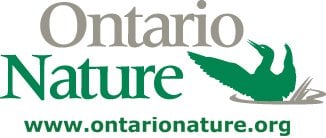When the Government of Ontario announced its Forest Sector Strategy in August 2020, the state of our democracy in Ontario became crystal clear. The Province is prepared to nearly double the amount of industrial logging in Ontario while completing dismissing our collective concerns about how that could harm wildlife and waters. We feared that the Strategy could be used to further an agenda of environmental deregulation. Changes are already underway (or approved) to lengthen the time between independent forest audits, and to "remove red tape" associated with how the Environmental Assessment Act and Endangered Species Act apply to forestry, among ...
When the Government of Ontario announced its Forest Sector Strategy in August 2020, the state of our democracy in Ontario became crystal clear. The Province is prepared to nearly double the amount of industrial logging in Ontario while completing dismissing our collective concerns about how that could harm wildlife and waters. We feared that the Strategy could be used to further an agenda of environmental deregulation. Changes are already underway (or approved) to lengthen the time between independent forest audits, and to "remove red tape" associated with how the Environmental Assessment Act and Endangered Species Act apply to forestry, among other deregulation.
The issue is not so much what is in the Strategy, but rather what is missing, and the vagueness around what is meant by seemingly innocuous statements such as “remove barriers to accessing wood”. Which barriers? Indigenous environmental and health advocates? Environmental organizations? Remote tourism operators? Wild food foragers? The removal of these “barriers” began with the Province's consultation process to develop the Strategy, which was invite-only.
We asked the government to share the forest. With the massive surplus of forest that has not been logged over the past 10–20 years due to market factors, this government had an unprecedented opportunity to support Indigenous and local communities that are moving forward with conservation initiatives, and commit to protecting more wildlife habitat and non-timber forest values. Instead, the government chose to prioritize industrial forestry uses above all other uses, and may have closed the door to conservation opportunities.
If the Government of Ontario won’t listen, we believe it’s time to talk directly with the companies purchasing wood fibre from our forests. To start, we’ve chosen Procter & Gamble, the largest consumer of Ontario pulp and one of the most influential producers of disposable products that use pulp from Ontario forests. Procter & Gamble produces thousands of types of household products, including Charmin toilet paper, Bounty paper towels, Pampers diapers, Bounce dryer sheets, and Swiffer dusters.
Please sign our letter for Mr. David Taylor, calling on Procter & Gamble to protect the habitat of species at risk, purchase from companies that obtain Free, Prior and Informed Consent from Indigenous people, increase the amount of post-consumer recycled content, and source from FSC-certified forests.
Old-growth red pines © Noah Cole
